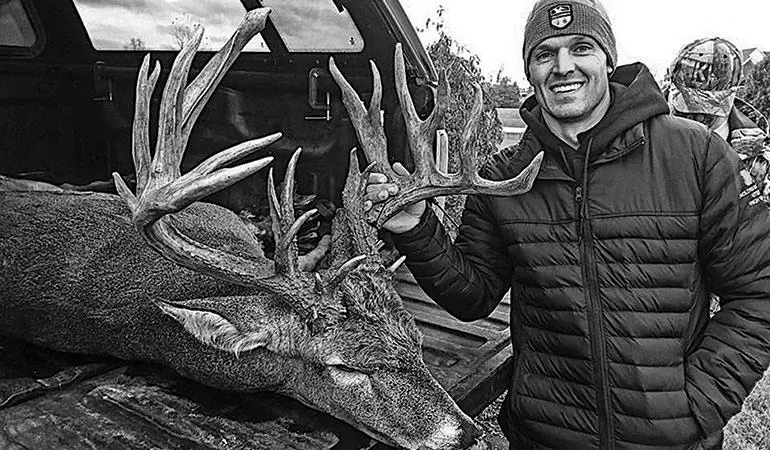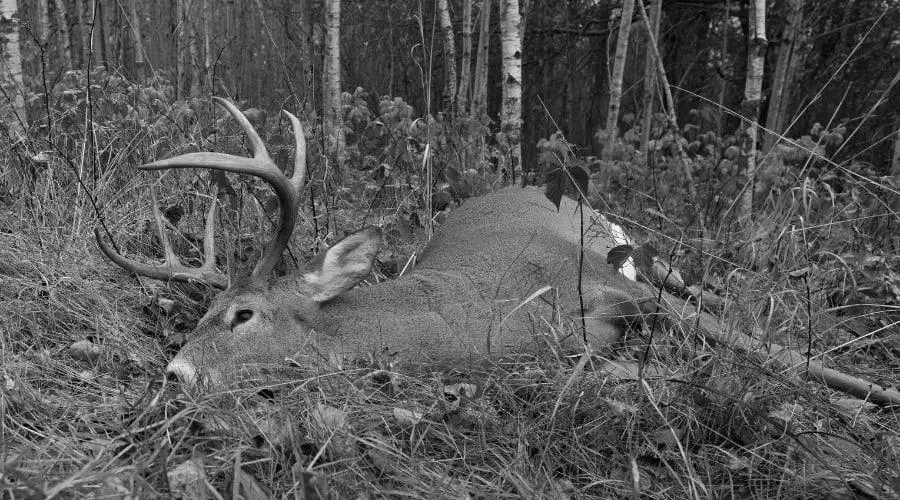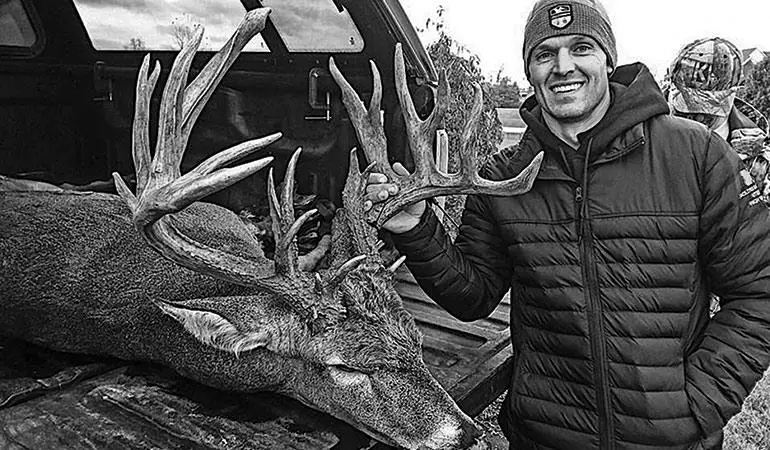Are you planning on going deer hunting in Michigan? If so, you need to know about the rules and regulations regarding hunting and the safety zone. In this article, you will learn about the types of hunting licenses in Michigan and the state’s safety zones. You will also learn how to get permission to go deer hunting in Michigan. And finally, you will find out about deer taxidermists.
Hunting license types
There are two types of hunting licenses in Michigan. A hunting license is required for anyone who plans to hunt in Michigan, whether they live there or not. Hunting licenses are required for different kinds of game and for different ages. Some exceptions apply to certain types of game. Learn more about the different types of hunting licenses in Michigan. After you know the requirements, you can purchase a hunting license. The best way to get a hunting license in Michigan is to go to the Department of Natural Resources website.
For non-residents and residents of Michigan, there is a basic hunting license. This license allows you to hunt small game animals. Additional licenses must be purchased for larger game. If you’re a teenager or younger, you can purchase a junior license. For hunters older than 16, you need to purchase a full-priced license. For seniors, you can purchase a reduced-fee Senior Base License.
When hunting in Michigan, you need to have a hunting license and a fishing license. Both types of licenses require you to obtain a permit from the Michigan Department of Natural Resources. Hunting licenses are required for hunting on state-owned land and on private property. While you can get a license on state lands, you must follow special rules if you use a motorized vehicle. You can also hunt with a bow if you use a concealable hunting license, but you can’t use a firearm unless you have a hunter’s license and the right equipment.
If you want to hunt for salmon or trout, you need to get a Michigan waterfowl stamp. You can get one for residents and non-residents, but this license does not allow for apprentice hunters. You can also purchase a fishing license from the state’s Department of Natural Resources. It costs $25, but you can also obtain a hunting license if you’re disabled and a veteran. If you’re a veteran, you can purchase a hunting license for $27.5 for a 10-year period.
There are many different types of Michigan hunting licenses, but there are some common rules that apply to all. For example, you need a firearm hunting license if you want to hunt ruffed grouse or ducks. In Michigan, you must wear a hunter’s orange garment while you hunt. The outermost part of your clothing must be Hunter orange so that the game can easily identify you. If you violate a bag limit, you could face a fine.
Getting permission to hunt deer in Michigan
Getting permission to hunt deer from your Michigan house may be easier than you think. The Michigan Department of Natural Resources regulates the hunting season. Hunters are required to stay at least 30 yards from the property line, which is marked by red stakes. The state also prohibits hunting within 450 feet of an occupied building. Hunters are also prohibited from using motorized vehicles on private property, unless there is a designated parking area. They are allowed to use tree stands and type 1 ground blinds, according to state law.
Hunters in Michigan must get permission from the landowner before they can hunt. Hunters must be familiar with nearby structures and the landowner’s contact information. If deer are shot on private property, it’s illegal to bring them back to their residences. A trespassing dispute typically results in a conservation officer being contacted. If you’re thinking of hunting deer near a private property, you should contact the landowner first to get permission.
Hunters with a disability can obtain a special license from the DNR. In Michigan, if you have a disability, you can take advantage of specialized hunts, accommodations, and other services provided by the DNR. For active-duty military members stationed in the state, they can purchase a resident hunting license. The DNR also offers free licenses to resident veterans with 100% service-connected disabilities. If you’re a veteran, you may qualify for a free hunting license, and you’ll never have to pay for a license again.
After you’ve received permission from the landowner, you can go ahead and hunt deer in Michigan. However, you must pay any fines and make sure you don’t harm private property. The last thing you want is to be stuck in a situation where you’re caught. The law does not make it easy to avoid, so you must get permission before you start hunting. Just remember that your neighbors’ property rights are sacred and should be respected. You should never trespass without the permission of the landowner.
The state’s DNR has a 5-acre minimum requirement for private property hunters, but that is no longer the case. However, the 450-foot safety zone rule still applies. If you’re planning to hunt deer from your Michigan house, you should ask permission from your neighbors first. If they don’t, they will report you to the DNR. They will then investigate your hunt and issue a permit if necessary.
Safety zone state law
Michigan hunters should be aware of the state’s Safety Zone Laws before heading to the woods. These rules apply to structures such as houses, barns, and other buildings. This rule does not apply to target shooting or indoor shooting ranges. Also, hunters should know where they are hunting and the boundaries of private property. Trespassing during hunting can result in criminal or civil penalties. The safety zone law is an important factor for hunters and property owners alike.
There are several ways to avoid violating the State Laws. One option is to hide the doe until the police arrive. However, this can be a risky strategy if the animal is caught and the hunters are found. This practice will only make matters worse. Moreover, a doe could be spotted and caught by someone else who might have a weapon. In addition, hunters must take a hunter safety course. After completing this course, they should learn how to clear a target and not harm things that shouldn’t be harmed. Other things that shouldn’t be harmed include other animals in a herd, houses, roadways, and other objects that may be near the area. It’s important to think about other things in order to avoid shooting the doe.

Another important point to remember when shooting a deer is the Safety Zone state law. This law prohibits hunting within 150 yards of houses and barns. It also requires permission from the property owner. Besides this, violating this law can cost you a good deal of time and money. This state’s Canton Police Department is very strict in enforcing the State Laws concerning hunting.
Moreover, the laws regarding hunting on national forest lands are strict and you may face harsh penalties if you violate them. Hiring an attorney can help protect your rights. In many instances, violating this law may even result in your loss of hunting rights. With an attorney’s help, you can avoid a lawsuit by following the rules and regulations correctly. You should also follow all signs and regulations to protect your rights.
Getting a deer taxidermist in Michigan
Whether you’re interested in preserving the memories of your hunting trip or looking for a new trophy for your home, a Michigan deer taxidermist can help. With decades of experience, a taxidermist can turn a buck into an exquisite trophy, displaying the animal’s beauty and personality in a museum-quality display. Taxidermists in Michigan typically specialize in a variety of species, including deer.
When choosing a taxidermist in Michigan, keep in mind that not all businesses are created equal. For example, there are taxidermists that specialize in certain species, like whitetail deer. In most cases, taxidermists are licensed by their state to handle these animals, but some are federally licensed to work with ducks, geese, or other birds. If you’re not sure whether your taxidermist is licensed to work with your particular species, you can always check with the state’s Department of Natural Resources or ask around for recommendations.
In general, taxidermists in Michigan use two methods for skinning a deer. One method is the dorsal method, where a long incision is made in the backbone. The carcass is pulled through the incision, while the head and feet/hooves are removed. A deer’s hide is then frozen. After the procedure, the hide is wrapped in a protective covering, ready to be shipped or displayed.
Jim and Joel Walsh are long-standing members of the Michigan Taxidermy Association. These members are committed to promoting the art of taxidermy in Michigan. Joel, a former deer taxidermist, has won several awards for his work in state competitions. They also served on the board and as competition chairman. And when you’re ready to place your order, the Walshs will deliver the results you want.

Another way to find a quality taxidermist in Michigan is by visiting a taxidermist. The Michigan Department of Natural Resources has recently developed new rules aimed at increasing biosecurity and enhancing the waste disposal of taxidermists. This proposal aims to close a troubling loophole that allows dead deer from out-of-state to infect live deer in Michigan. By hiring a Michigan taxidermist, you can be sure of receiving a top-notch quality mount.
Do you need a hunting license to hunt game on your own property? This article covers Pennsylvania hunting laws, hunting on private property without a license, and Waterfowl hunts. Additionally, it covers the Connecticut laws regarding taking game on private land. If you are looking for hunting license information, do not worry; we have you covered. The article below will answer your questions and provide you with helpful links to help you apply for the right hunting license.
Pennsylvania
If you’re thinking about purchasing a Pennsylvania hunting license, you’ve probably already decided what kind of game you’re interested in. The great thing about this state is that it offers a huge range of game species. Half of Pennsylvania’s land is forested, creating the perfect habitat for wildlife. This includes big and small game, waterfowl, migratory game birds, and furbearers. To learn more about the requirements for obtaining a hunting license, read on.
The Pennsylvania hunting license is valid for a license year and can be obtained by a Pennsylvania resident aged 17 or older. This license also grants privileges for spring and fall turkey hunting, small game hunting, and antlered deer. For a license year, a hunter can purchase one antlered deer tag, one spring turkey tag, and one small game tag. Residents of Pennsylvania aged 12 and older are eligible for the Pennsylvania Resident Junior Combination License, which is worth $150.
The Pennsylvania Treasurer’s Office will begin accepting applications for antlerless deer licenses by mail beginning July 18. The first round of unsold «bonus tags» will start Monday, August 1. The applicant may submit one application statewide per round, or as many as three in the same envelope. However, an application received prior to the start of the round will be rejected. The application process will remain the same for the three seasons. However, there are some changes to the application process.
If you have purchased a Senior Lifetime License prior to May 13, 2017, you are exempt from acquiring a Pheasant Permit. The Pennsylvania hunting license will state «Pheasant Eligible» on the bottom panel. For renewal purposes, you’ll need to provide proof of residency, usually a Pennsylvania driver’s license. If you are unsure, you can use a certified copy of your license.
If you’re a member of the U.S. military, you can purchase a reduced-fee hunting license when you’re on leave. Similarly, if you’re a veteran, you may be eligible for free or reduced-fee Resident Disabled Veteran (DV) hunting licenses. These special licenses can be purchased at the Pennsylvania Game Commission. These licenses are valid from July 1 to June 30 of the following year.

Disabled Veterans
To hunt on your own property as a disabled veteran, you must meet certain requirements. Depending on your state, you will either need a disability rating of 25% or more from one of the armed forces in the United States. You must have written proof of your disability. Or, you may be eligible for a free nonambulatory hunting license from the Department of Wildlife Conservation. You can apply for one of these permits online or through your local department of wildlife.
If you’re a disabled veteran living in South Dakota, you may qualify for reduced hunting and fishing license fees. In order to qualify for a reduced license, you must present proof of a Veterans Administration award. If you have a 40% or greater disability, it must be a service-connected disability. You must also have proof of residency in the state. You can find the necessary information in your current benefits letter from the VA.
A disabled veteran license is valid for the same duration as a regular hunting license. However, you must have lived in Arizona for at least a year before applying for a disabled veteran hunting license. A disabled veteran license is issued to veterans who have been receiving VA compensation for at least one year. A veteran with a VA rating of 100% Individual Un-employability does not qualify for a disabled veteran license.
The process of getting a hunting license for disabled veterans is often arduous. Fortunately, there are several resources available to help them complete the process. DoNotPay is a service that can make the process simpler and less stressful for you. If you’re a disabled veteran and want to hunt on your own land, check out DoNotPay to help you obtain a hunting license and enjoy the outdoors.
The Arizona Game and Fish Department will accept a disability letter and application form from a disabled veteran. The department is located at 5000 W. Carefree Highway in Phoenix, AZ. Paper licenses are free, but plastic cards are available for $4. Once you’ve filled out the application, visit a regional office or contact the Department of Veterans Affairs for more information. They will be happy to help you.
Waterfowl hunters with or without a hunting license
Before heading out to hunt waterfowl, it is important to know the regulations for hunting these birds. You must have a hunting license in your state, a waterfowl permit, a no-cost migratory bird permit, a federal duck stamp, and a quota permit if you are hunting on wildlife management areas. You can find specific information on the regulations for waterfowl hunting in Louisiana in the «Migratory Bird Season.» You’ll need to know when the seasons are open and close.
Getting a waterfowl stamp is the first step to pursuing your dream. You can buy these stamps at the Post Office, a National Wildlife Refuge office, or discount sporting goods stores. Once you purchase one, make sure you sign it in ink. These stamps are valid for 45 days from the date you purchase them. If you’re hunting coot, rails, woodcock, or snipe, you don’t need a duck stamp.
During migratory bird hunting seasons, hunters can take snow geese or Canada geese. However, they cannot take Canada geese and snow geese during closed seasons. Using a nontoxic shotgun and a sink box to conceal their bodies below the water is a better option. The migratory bird season lasts from January to March.
A waterfowl stamp is valid for five days. Waterfowl hunters with a hunting license can hunt a number of game birds, including migratory ducks and mourning doves. Non-residents need to have a basic hunting license and a waterfowl stamp to hunt waterfowl. They may also need to get a federal waterfowl stamp or a state game bird validation.
Virginia has different rules regarding hunting. You must be at least 16 years old to hunt waterfowl, and you must have a hunting license to hunt waterfowl. Hunters under 16 must have a signature from the carrier of the license. Hunting licenses are also required for horseback fox hunters. Virginia also requires the purchase of licenses for all other animals, except for unnaturalized persons.
Taking game on private land in Connecticut
Taking game on private land in Connecticut is legal if the landowner or owner grants permission to use a firearm. In most cases, a hunting license is required. Some landowners allow hunters to use archery equipment, while others allow only handguns. Hunting rules vary depending on the species, and you may need to get a permit before hunting. In Connecticut, hunting is illegal on Sunday, but you can hunt deer on private land with a revolver.
Hunting laws in Connecticut prohibit the killing of non-migratory game birds, crippling or wasting an animal, and consuming a wounded animal. There are also strict laws on using a firearm or any recording device to call the animal. You may also be barred from using electronic calls to hunt, although you can use these devices on public lands with the landowner’s permission. Lastly, hunting with a firearm is prohibited on other types of land, even if you have permission to do so.

While it may seem intimidating to take a game on a farmer’s land, Connecticut law allows hunting on private lands, and many landowners welcome it. However, some landowners are reluctant to allow hunters to take advantage of their hospitality. However, this relationship is not always as warm as it may seem. The state’s fish and game departments are concerned about landowner-sportsman relations and are concerned that urban hunters are abusing the hospitality of landowners.
